Interview: Mercury Rev’s Jonathan Donahue On Remaking Bobbie Gentry’s Delta Sweete
We here at The 13th Floor are very excited about the release, today, of Mercury Rev’s Bobbie Gentry’s The Delta Sweete Revisited.
After spending last year on the road celebrating the 20th anniversary of their masterpiece The Deserter’s Song, Jonathan Donahue, Grasshopper and the rest of Mercury Rev have been quietly making, what will no doubt be, a musical highlight of 2019.
The Delta Sweete was Ode To Billie Joe-singer Bobbie Gentry’s second album. Released in March of 1968, it was almost universally ignored. Now, 50 years later it has gotten a second life thanks to Mercury Rev and a bevy of female vocalists who have signed on to sing Gentry’s songs. Its a stellar line-up that includes Norah Jones, Hope Sandoval, Beth Orton and Margo Price along with Lucinda Williams who turns in a stunning new take on Ode To Billie Joe.
The 13th Floor’s Marty Duda spoke to Mercury Rev’s Jonathan Donahue about his reasons for remaking the obscure Bobbie Gentry album and how he managed to gather together such an array of female artists to help out.
Listen to the interview here:
Or, read a transcription of the interview here:
MD: Congratulations on the new album, Delta Sweete Revisited. I am enjoying it immensely and I guess the place to start with to talk about it is just like where did the idea come from to do what you’ve done with this album?
JD: Now Looking back, I have no idea!
MD: Laugh
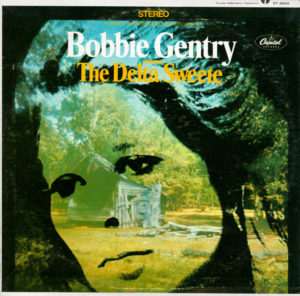 JD: It just seemed to come up. I sort of grew up in America in the late sixties and early seventies and so it was Ode To Billie Joe that was the doorway into Bobbie. But for whatever reason, like a lot of people, I hadn’t considered the rest of her career. You know, the song itself imprinted very deeply on just about everybody I talked to these days. But it wasn’t until about eight years ago that I came across The Delta Sweete. I was sort of just, looking at, you know. And I thought in the beginning that Ode To Billie Joe was on there. I really didn’t even consider that there was much of a
JD: It just seemed to come up. I sort of grew up in America in the late sixties and early seventies and so it was Ode To Billie Joe that was the doorway into Bobbie. But for whatever reason, like a lot of people, I hadn’t considered the rest of her career. You know, the song itself imprinted very deeply on just about everybody I talked to these days. But it wasn’t until about eight years ago that I came across The Delta Sweete. I was sort of just, looking at, you know. And I thought in the beginning that Ode To Billie Joe was on there. I really didn’t even consider that there was much of a
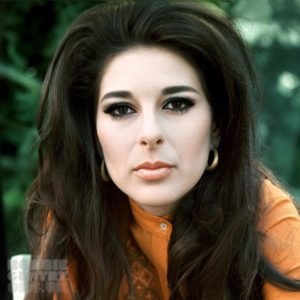
longer legacy, you know, to Bobbie at the time.
MD: Right.
JD: So, I took it home and I realised that song’s not on here. But wow! Listen to this. This is amazing for a lot of reasons. That it was so delicate, sincere. And it was something that I’d never even come across. That was really what blew me away. And then I sort of looked into it as you can these days, with everything. And I realised I wasn’t alone. A lot of people hadn’t had this in their consciousness. For whatever reason, even in its time it seemed like it was treated so out of time.
MD: Yeah, I wasn’t really aware of the album until I got the Bobbie Gentry box set that came out last year and of course it was on that and that’s how I discovered it. I think a lot of people are rediscovering her music and the fact that’s there’s a lot more than, like you say, Ode To Billie Joe.
JD: Absolutely.
MD: And so did you have to present this idea to the rest of the band and convince them that this was going to be the next project.
JD: I did. Yeah, you know. And I strangely enough, it didn’t require a great deal of convincing, which I was at first quite suspect of. “What’s going on? Are these guys just playing with me?” But you know it was Grasshopper and Jesse (keyboard player Jesse Chandler) as well who actually you know, were more than encouraging, they seemed to get it right away. I didn’t have to say “Hey It’s a weird idea, we’re three guys from the North Country, we’re not Delta Bluesmen, we’re not country singers. But why don’t we give this a run”. And they were there the whole step of the way, you know?
MD: Yeah…
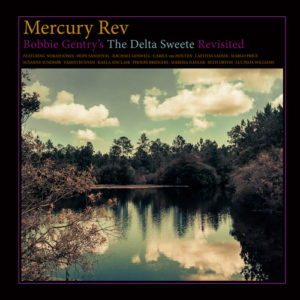 JD: And that was something that I hadn’t anticipated, you know? I was the first to say like, I know it’s weird, it’s not the White Album. Everybody wants the White Album. We could cover that. I was choosing something to bring up as something from an artist who was quite silent for many years, but also one of her more abstract, more obscure records as well.
JD: And that was something that I hadn’t anticipated, you know? I was the first to say like, I know it’s weird, it’s not the White Album. Everybody wants the White Album. We could cover that. I was choosing something to bring up as something from an artist who was quite silent for many years, but also one of her more abstract, more obscure records as well.
MD: Yeah. And so, I think are lot of people are going to be focusing on the female vocalists that you’ve employed to sing each of the songs on here. But I first wanted to talk to you about the band’s actual contribution and the musical settings that you set for these people. I think they are amazing. They sound beautiful and lush and there’s a lot there to listen to. So how did you approach between you and the rest of the band making these? Did you collaborate with the vocalist? Did you…
JD: No. I mean initially it was just me singing. I was the only guy in the room that wanted to sing. And after all, without taking credit for it, it was kind of my idea, so it was on me to, well, I should sing I guess.
MD: Yeah.
JD: It quite quickly became clear that it wasn’t meant for me. It wasn’t meant for any male vocal. It was meant for females. And that made everything really go into Technicolor. That was the moment I realised that, wow! That’s the way into this vault, into this safe. It’s through the combination of female singing. So we had done all the music first. All the music is the way you hear it first.
MD: Right.
JD: It just had my guide vocals on it. And then I would send it to the singers along with Jesse and Grasshopper. We each knew a few of the girls ourselves. And so, with the disclaimer like “Don’t, don’t pay too much to my vocals. You’ll do so much better. Don’t let my vocals turn you off.” And all the girls, each time they sent a track back, or in some cases we were in the studio with them, it just unlocked the record – that one more click on the dial on the safe, you know?
MD: So which ones were you in the studio with?
JD: Vashti (Bunyan), Lucinda (Williams), Beth Orton, there may have been one other. You know, it was actually in Los Angeles, we flew out and recorded Lucinda. And it was her version of Ode To Billie Joe, which as we know was not on the album, but we felt it was important emotionally to give our sense of the story and place for The Delta Sweete. But when she sang it, it all came into focus. And it was the moment I felt there is a wind behind us in our sails that’s much bigger than just Mercury Rev.
MD: Right.
JD: You know – there’s something here that I don’t know what it is. And like I don’t know where the idea came from. It wasn’t something I had long planned out. I think it was just it just arose in me and I’m still… it’s just like being guided by an invisible hand in a way. I still can’t put my finger on why.
MD: (Laughs) It’s an incredible version of Ode To Billie Joe. Did you work with her on her vocal, or did she just do what she does? How…
JD: No! No, not with any of the girls at all. They all changed it in their unique way and there wasn’t any talking or you know, any explanation. That’s pure Lucinda just as it’s pure Beth or you know, pure Hope Sandoval. You know, they’re all just… we didn’t have to talk about it. And that was something where again, where it was encouraging, in a way that you didn’t have to explain yourself. And they didn’t have to explain where they were coming from. And to this day, I don’t know where any of the women were coming from towards Bobby. Maybe you’ll find out in years to come yourself, but we didn’t have some great manifesto as to what this was and why this should happen.
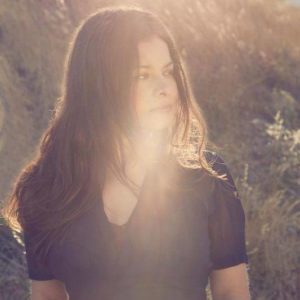
MD: Interesting. So when you approached say Hope Sandoval or Norah Jones did you have to go into a fairly lengthy explanation of what was going on? Were they kind of on board right from the beginning? How did the conversations go between you and the guest artists?
JD: They all, every one of the women said yes within fractions of a second of getting a text or an email or a phone call. There wasn’t any deliberation. I think had there been any hesitation on their part, I would have probably backed away, and just figured this just wasn’t the right time for this combination.
MD: Right.
JD: But they all said yes immediately. You know… oftentimes much to the chagrin of their management and lawyers and record companies who were like, “Hey! What did you just agree to?”
MD: Right, right…
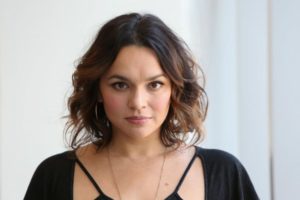
JD: “Yeah, I’m singing with Mercury Rev.”
MD: laughs
JD: And to be honest there was a fair bit of… we were like kids in the candy store. We were asking people who were on our own jukebox to sing with us. And this was a really great opportunity for us to work with people like Hope and Lucinda and people like that, that we hadn’t been previously able to.
MD: Right. And it seems like on some of the performances at least, you hear a different side of the artist. Like with Norah Jones’s version of the Okolona River Bottom Band, she sounds…
JD: I’m glad you picked up on that because that was something that a number of the women, and I won’t say who, remarked to us once to us once they were done. It was along the lines of “My goodness, I didn’t know I had this in me!” You know? And I can’t take credit for it. I didn’t say, ‘hey do something like this.’ They weren’t our songs. They were Bobby’s songs. But for whatever reason, they seemed to elicit something that more than a few of them said, “I was not in my comfort zone when we sang this Jonathan but thank you.”
MD: Yes.
JD: Thank you to Grasshopper and Jesse as well. And again, that was something that, you’re so blessed when it happens, but at the time you’re probably more nervous than anything.
MD: You mentioned that they’re Bobbie’s songs, but there are a few, kind of old blues songs on here as well that Bobbie originally chose when she made the album, one of which was Big Boss Man, which Hope Sandoval does. I’ve heard that song a thousand times, but never like that. What caused you to… cause you must have chosen the initial approach because you laid the tracks down first. So tell me…
JD: Yeah, we did. What we did notice upon listening to the original is how feminine Bobbie seemed to approach some very masculine cover songs.
MD: Uh huh.
JD: You know, Parchment and Big Boss Man, that were traditionally, you know, the province of men singing them. In oftentimes, or from a very masculine – you can’t hurt me, you can’t touch me – kind of way. And she seemed to give them a vulnerability and we wanted to do what we could to honour that. At least from our perspective. And that was something… I’ve never spoken to Bobbie, never tried to reach out to her. We wanted to respect her quiet calm that she’s probably worked immensely hard to maintain through the years. So we were going on you know, intuition – male intuition albeit, but still our intuition that said there’s a feminine quality to these cover songs and let’s not lose sight of that.
MD: Yeah. Do you think she’ll ever hear this? (Laughs.)
JD: I hope in a way that Ode To Billie Joe found its way to my ears as a very young child, maybe this will find its way to her at some point and, you know, that would be enough.
MD: Right. And I know it’s difficult to choose out of all the performances on there, but were there any performances by any of these female vocalists that really surprised you and stood out from what you were expecting?
JD: Yeah. And again, without sort of naming names, there were a few takes of some of the women’s tracks that did stop me in my tracks, you know. Vashti Bunyan, who we recorded in person. So not only were you wide eyed and sort of bushy tailed, when she walked in the studio – but then the voice came.
MD: Yeah.
JD: And the same with Beth Orton and obviously Hope Sandoval. You’re just… you know… this is a voice that’s already in your musical DNA and so, to hear it first-hand – that was beyond the expectation. We never thought this was going to be released. We just approached it like a weird cassette for friends – or for the younger generation, as a digital download only.
MD: Yeah right.
JD: We didn’t think it would have this scope. But when more and more of the women came on board and started adding their vocals, again it was something that was beyond the event horizon we had anticipated.
MD: Right. Now the band itself, Mercury Rev, I know you guys were doing like some 20th anniversary shows for Deserter Songs and it’s been a while since you’ve released any original music. I think 2015 was the last album and before that 2008, so what is the status of the band and what is the plan for the near future?
JD: Well, you know we’ve been busy with the Bobby record and the touring Deserters. We released on of our sort of avant side projects, The Harmony Rockets with Peter Walker and Nels Cline and stuff like that. So, we’ve been doing a lot of avant stuff, a lot of live soundtracks and things as well. And that’s always been a part of myself and Grasshopper especially. And even some of the very original members of the band like David Baker and Suzanne Thorpe. We’ve done experimental non-vocal, non-pop side of that we are equally as enamoured with as with the technicolour Walt Disney sound.
MD: And are there any plans to take The Delta Sweete on the road?
JD: Well, there’s a lot of interest
MD: I bet!
JD: We’ve tried to, you know, using the largest computers available known to man, tried to make an equation that fits all 12 singers into a live show.
MD: That would be outrageous
JD: In the same sort of space-time… 12 kittens in a basket was the result that, you know, the computer kicked back to us. If we can manage to get a few kittens in a basket, that would be a great night.
MD: And imagine that at least if you could do one show with everybody and get it video-taped and sent, you know… make it available. That would be a pretty big deal, anyway.
JD: That would be like solving Quantum Gravity.
MD: Laughs. Absolutely.
JD: There are many theories as to how and why that could happen, but you know, the reality of it remains to be seen.
Bobbie Gentry’s The Delta Sweete Revisited is released today.
1. Okolona River Bottom Band ft. Norah Jones
2. Big Boss Man ft. Hope Sandoval
3. Reunion ft. Rachel Goswell
4. Parchman Farm ft. Carice van Houten
5. Mornin’ Glory ft. Laetitia Sadier
6. Sermon ft. Margo Price
7. Tobacco Road ft. Susanne Sundfør
8. Penduli Pendulum ft. Vashti Bunyan with Kaela Sinclair
9. Jessye Lisabeth ft. Phoebe Bridgers
10. Refractions ft. Marissa Nadler
11. Courtyard ft. Beth Orton
12. Ode To Billie Joe ft. Lucinda Williams
